The very first car I ever bought was a 1999 Mitsubishi Mirage with 115,042 miles on it—a beautiful car. I bought it in 2008, when I was 17 years old, for $1,390 in cash. Two weeks later, I sold it for $2,850— double what I paid for it.
This was the start of my short but successful career as a car flipper. Flipping Cars is what paid for my college tuition. In the span of seven years, I sold 18 cars, averaging about $1000 in profit per sale. The average cost I paid for a car was $2250, and my average return was 100.6% – meaning I usually sold the car for double what I paid for it.
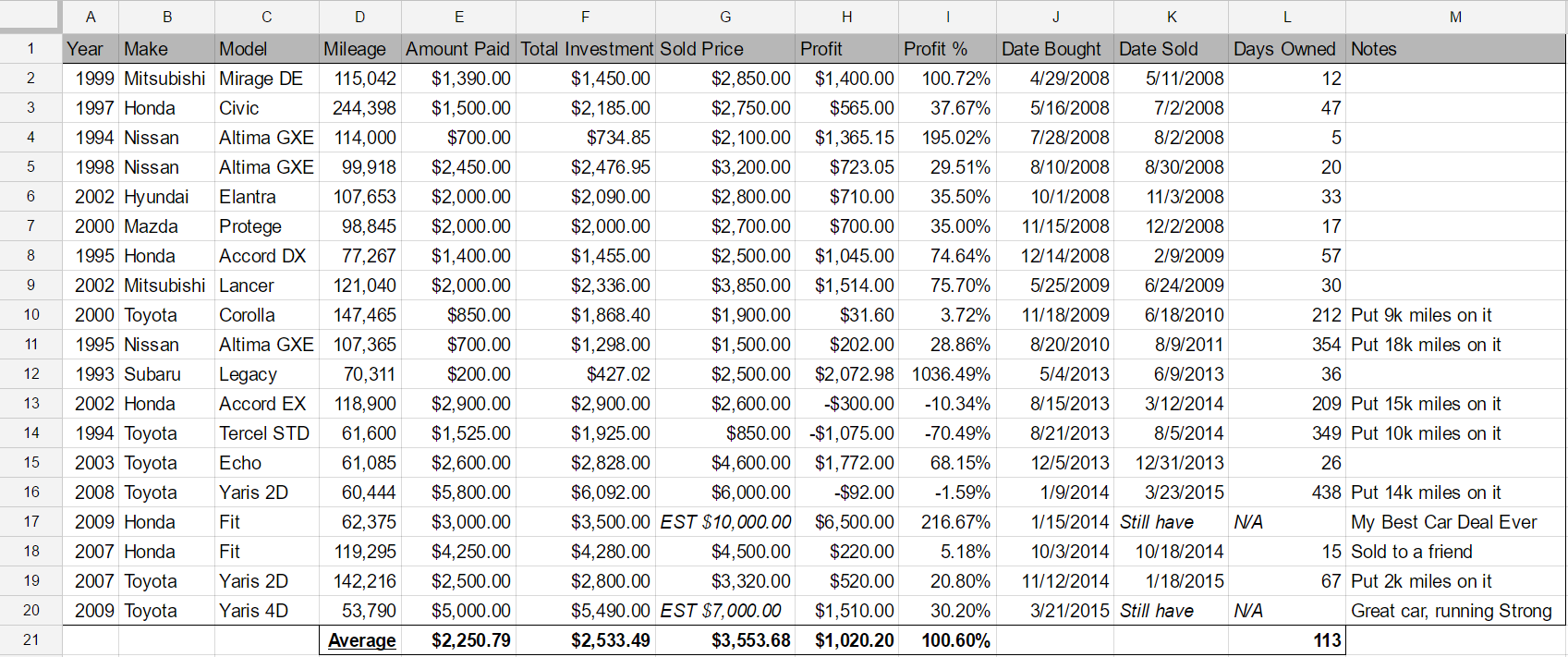
My main strategy for getting deals was to just spend countless hours searching for good deals to pop up on craigslist. When I found a good one, I made sure that I was the first to make it to the scene with cash and a license plate on hand to take the car home. You wave cash in a sellers face and let them know that you can take the car off their hands that minute – they usually become very negotiable with the price.
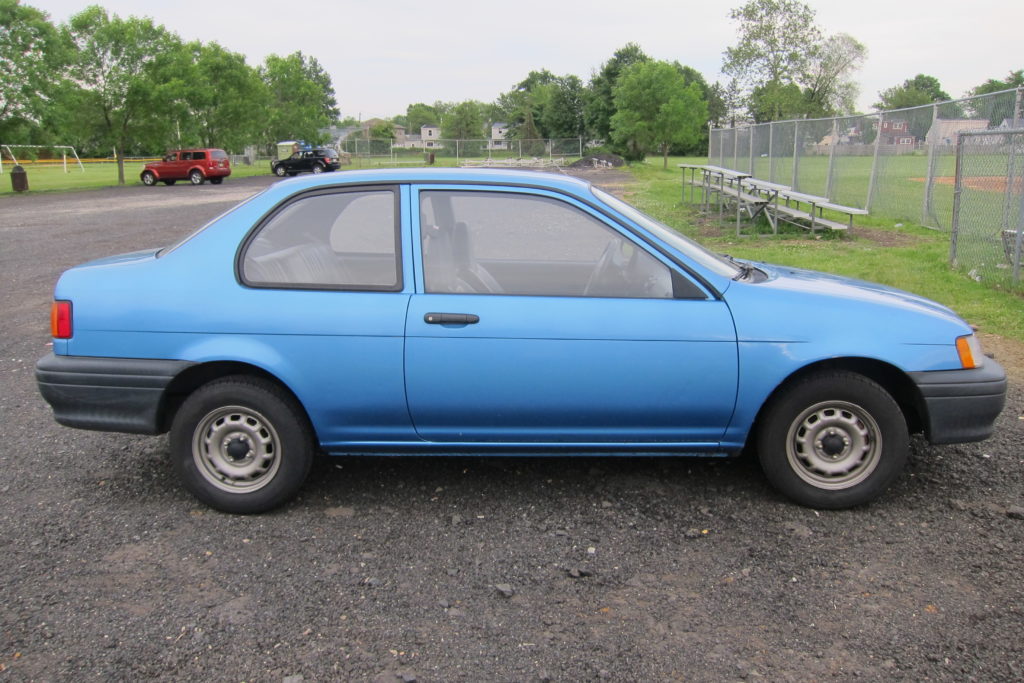
My Favorite Car happened to be my most troublesome car. It is the car pictured above: a 1993 Toyota Tercel. It was a barebones car and I loved it for its simplicity
- 4-speed manual
- No air conditioning
- No power steering
- From the factory with no passenger side mirror
- No tachometer
- I don’t think it even had a clock
Capital to start buying cars
I had the idea to start buying and selling cars shortly after buying my motorcycle. From that purchase I realized how cheaply I was able to buy it used on Craigslist and how I could have easily sold it for 40% more almost instantly. This began my journey to start raising capital. I bought my $2000 Kawasaki Ninja 500R with money saved up working as a custodian at my high school the summer before senior year. I also raised money by selling glowsticks during July 4th fireworks shows.
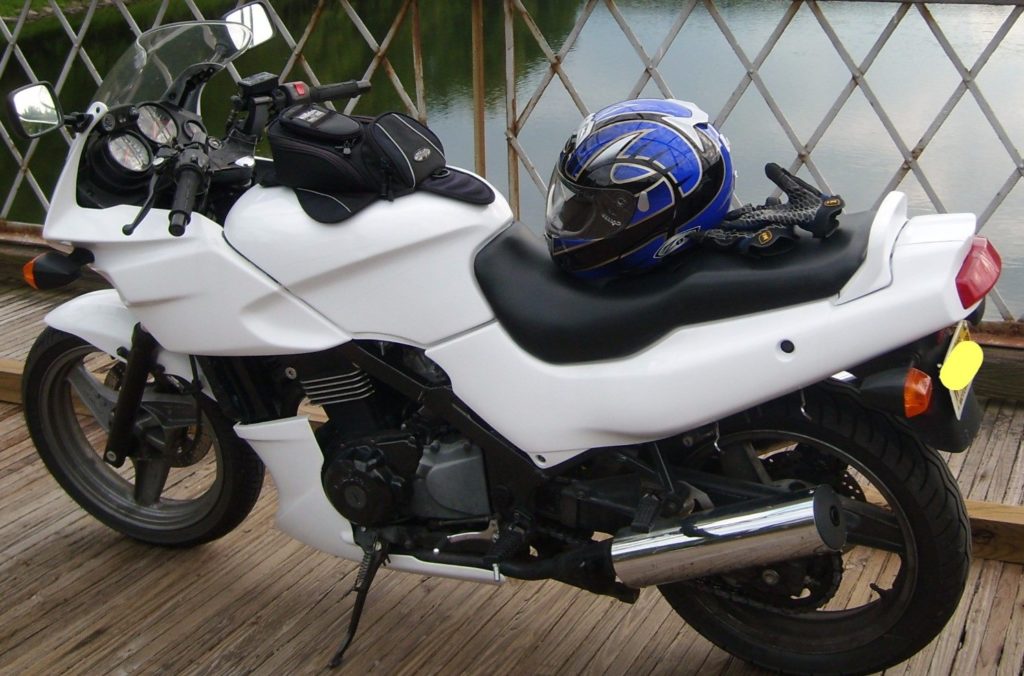
[I chose a motorcycle as my main mode of transportation purely because of indirect costs. At 17, car insurance would cost me close to $2,000 a year, but motorcycle insurance only cost me $300/year. I drove that thing through the rain and throughout the winter – it was a great bike. I put up the pictures of the bottom fairing because I was inspired by the beautiful designs my younger self, came up with. Pretty good, right? I painted the whole motorcycle from purple to white with a foam roller and thinned out rustoleum paint. It took 9 coats! My plan was to cover the whole thing in silver Sharpie. Unfortunately, Hurricane Sandy destroyed it before I had the chance to finish it.]
This time, to save enough money to start my car flipping business, I began working as a cashier at Taco Bell. I can truly say I loved it there. I am an introvert and was always somewhat shy, so the brief, quick exchanges that I had with customers were invaluable in the development of my social skills.
It took me six months to raise enough capital for my business. On my last day of work, I bought that first car. Two weeks later, I sold it for double what I had paid.
Questions and Answers
A lot of people ask me questions about this car business, so I’ve tried to consolidate most of the questions and their answers here:
- Where did you buy all your cars? All the cars except one were bought on Craigslist.
- Where did you sell all your cars? All the cars were sold on Craigslist.
- Were you pretty knowledgeable about fixing up cars? When I started, I just knew the very basics of maintenance from fixing up my motorcycle (things like changing the oil, spark plugs, air filter, etc.) As time went on and problems did arise, I used YouTube for help fixing certain issues. I would search for a video and often just follow along with it.
- What condition were the cars you were searching for? I wasn’t looking for fixer-uppers. I wanted well-cared for, single-owner Japanese cars that were under-priced and could be flipped quickly.
- Why buy Japanese? Japanese cars hold their value. I was buying 10+ year old cars, so I wanted them to be good quality. I knew from my families’ experience that Japanese cars tend to be a lot more reliable and maintenance-free than domestic or European cars.
- Don’t you lose a ton of money when you buy and register the car? Yes you do! In NJ you have to pay $60 for a new title, $50 for registration, and 7% sales tax on the purchase price.
- To limit these costs, I would try to get the seller to agree to sign over the title without putting my name as the buyer. This way, when I sold the car a couple weeks later, the new buyer could just sign his or her name as the buyer, and I wouldn’t have to pay any additional paperwork fees.
- If the seller wouldn’t agree to that, I would have to sign my name as the buyer and get a new title. Many times, I would get a new title and not even register the car. It would just sit in my driveway.
- You can save a ton of money by transferring your old plates to a new car and doing the same thing with registration.
- Did you like buying manuals or automatics? Automatics for sure. Manuals could usually be bought for a lot less, but they would sit around for a long time and it wasn’t worth it. Their target audience is too small.
- How many cars would you buy at a time? I only ever owned one car at a time. I didn’t want to tie up my capital in inventory, and, besides, we were renters without a lot of driveway space.
- Would you buy from dealers? I never bought from dealers, because dealers know their business. They are not going to let you get away with a good deal (maybe an ok deal). I was looking to make $1000 profit on each car, so I would instantly skip over any listings being sold by a dealer.
Finding Deals
I spent a lot of time scouring through Craigslist. Towards the end of my career I discovered IFTTT.com and that helped me to automate some of my searching. But, most of the time, I would just refresh Craigslist listings for my local area and jump whenever I saw a good deal pop up. First, I would call/email/text the seller. If they passed my preliminary questions list and things sounded good, I would head over IMMEDIATELY! (This is true now more than ever. Good deals go quickly!).
Questions I would ask:
- Are you the original owner?
- Is there anything wrong with the car?
- Has the timing belt been changed?
- Do you have maintenance records?
- Is there any mechanical or cosmetic damage on the car?
- Is the inspection current?
- Why are you selling the vehicle?
- Is the price negotiable?
I would take with me cash, spare license plates, a screwdriver, pliers, a flashlight, zip ties, EZ-Pass, walkie-talkies and an additional driver.
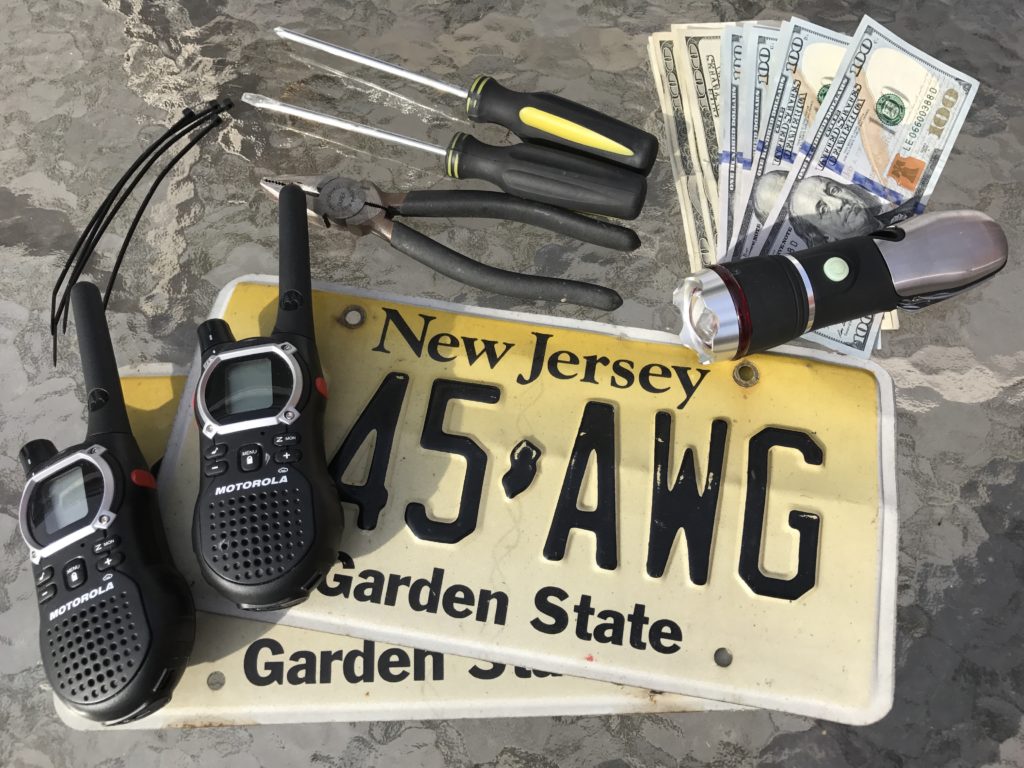
Negotiation
When you wave cash in front of a seller and let him know that if he says “yes” right now, you will have his car gone in 10 minutes and he will never have to deal with it or any more annoying phone calls from other buyers again, you are making a very tempting offer.
Tip: Bring Cash in two separate pockets. In one pocket, put the lowest amount you will offer, and the rest in another pocket. This is important because you don’t want to be taking 100’s away from a stack at the end of a negotiation—it’ll just make the seller feel like a chump.
I always like asking before I even get there if the price is negotiable. 90% of the time it is, but this question gets sellers mentally prepared for price reductions. Negotiating is definitely an art form. You always want the other party to make the first offer. For instance, the first car that I bought for $1390 was listed for $1650. I don’t exactly remember how the deal went down, but I believe I asked if it was negotiable, then threw out an offer like $1250. You will likely meet in the middle (See better Ackerman Haggling method below), so if you actually want to settle on a price like $1400, you want to go double the difference under so that the seller can counter and move you towards the number you actually want.
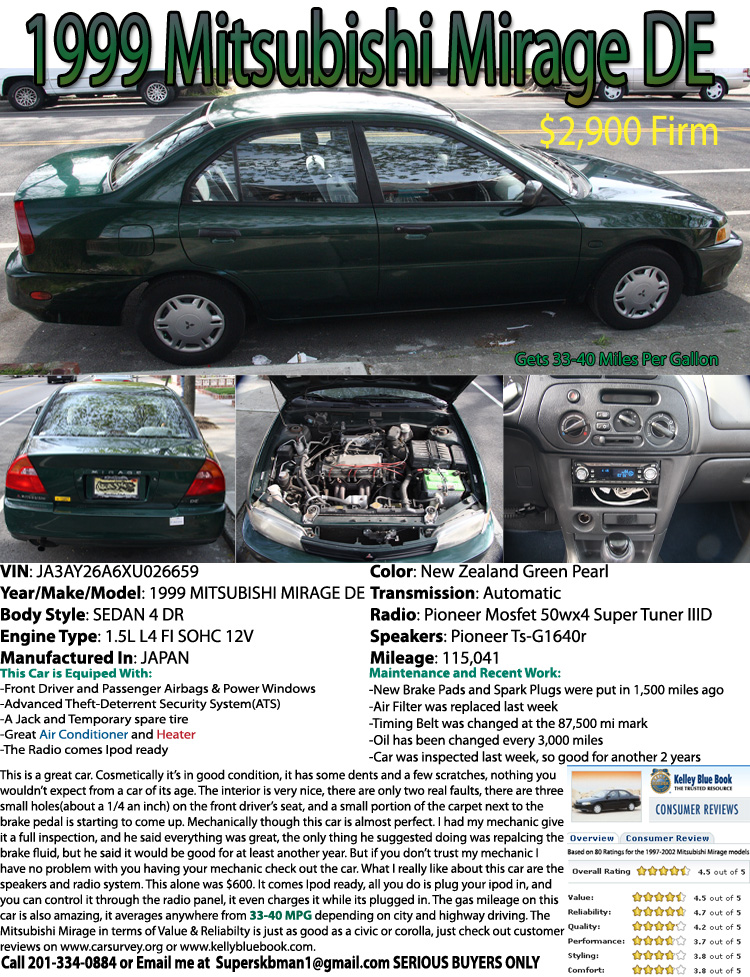
A lot of people negotiate by downplaying the car and saying this or that is wrong with it. I never liked this tactic as it doesn’t make anyone feel good. Usually I would say a lot of positive things, and comment on how well the car was maintained. Then I would finish with, “I know it’s worth a lot more, but would you take $x.xx for it? I have the cash right now, with plates, so I would be able to take it home now.”
You can negotiate other things as well. For that first car, the inspection happened to be expired. I asked the seller to bring it to the Department of Motor Vehicles and have it inspected before handing over the title. He agreed and it passed, so I had a car with a brand new inspection sticker, and I didn’t have to spend the money to title or register it through the DMV.
Tip: Always, always negotiate! Not just for your sake, but for the seller’s as well. A seller doesn’t want to think that he or she let the car go for a steal. If you just quickly say, “Yes, I’ll take it,”he’ll feel like chump for letting it go too low and you ARE a chump for not getting the best deal.
How to Haggle (the Ackerman Negotiation Method*)
- Set your target price (your internal goal).
- Give your first offer at 65 percent of your target price.
- Calculate three raises at decreasing increments (to 85, 95, and 100 percent).
- Use lots of empathy and different ways of saying “No” (“How am I supposed to do that?”, “What about this doesn’t work for you?”) to get the other side to counter before you increase your offer.
- When calculating the final amount, use precise, non round numbers like, say, $37,893 rather than $38,000. It gives the number credibility and weight.
- On your final number, throw in a non monetary item (that they probably don’t want) to show you’re at your limit.
* I read about this Technique, in Chris Voss’s – Never Split The Difference. A worthwhile read, here is a Negotiation Cheat Sheet he provides that can be helpful.
Inspection
Inspecting the vehicle is critical. Repairs can make or break a deal. Always, always take a road test! Do not buy it unless they let you do this. I highly recommend taking the car on the highway. Eric the Car Guy has a great YouTube channel on car repairs, and I’ve learned a lot from him. He has a great four-part series on inspecting a used car before buying it. I highly recommend viewing this before buying a used car.
Pride Of Ownership (POO) is the most important tell-tale sign of whether a car will be reliable or not. I have always done well with original owners who took meticulous records. That was my bread and butter.
Tell tale signs of POO
- Maintenance records
- No excessive bumps and nicks on bumpers
- Original manual, keys, spares
- Hubcaps are all present and not too badly scuffed
- Four matching tires
My Quickest Deal
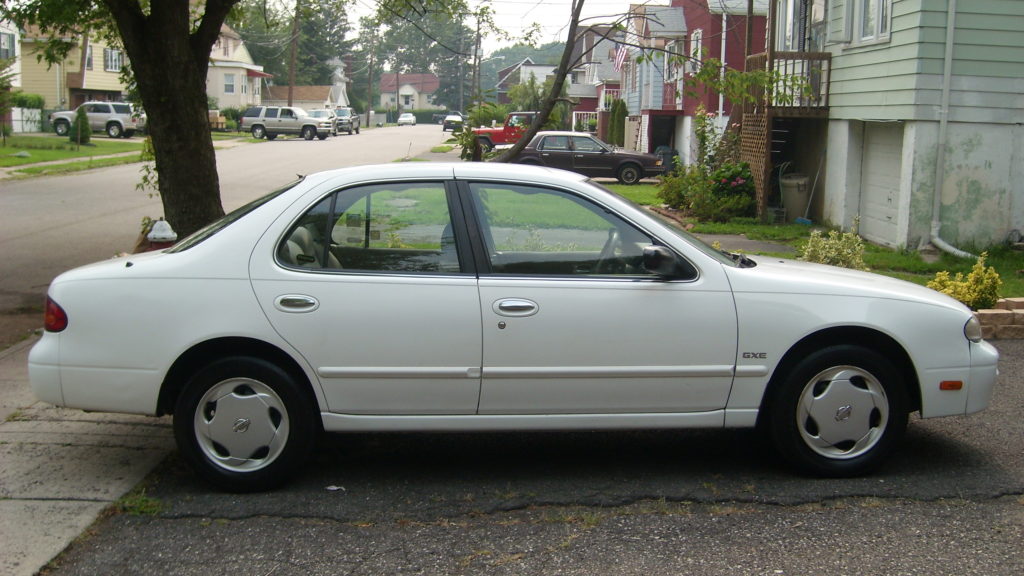
I bought a 1994 Nissan Sentra once for $700 from the original owner. I was at the owner’s house within 30 minutes of the listing going live. I bought it and it was in great shape and needed nothing. All I did was change the spark plugs, add some gas, and clean and vacuum it. I listed it the same day and three days later sold it for $2100.
My Best Deal
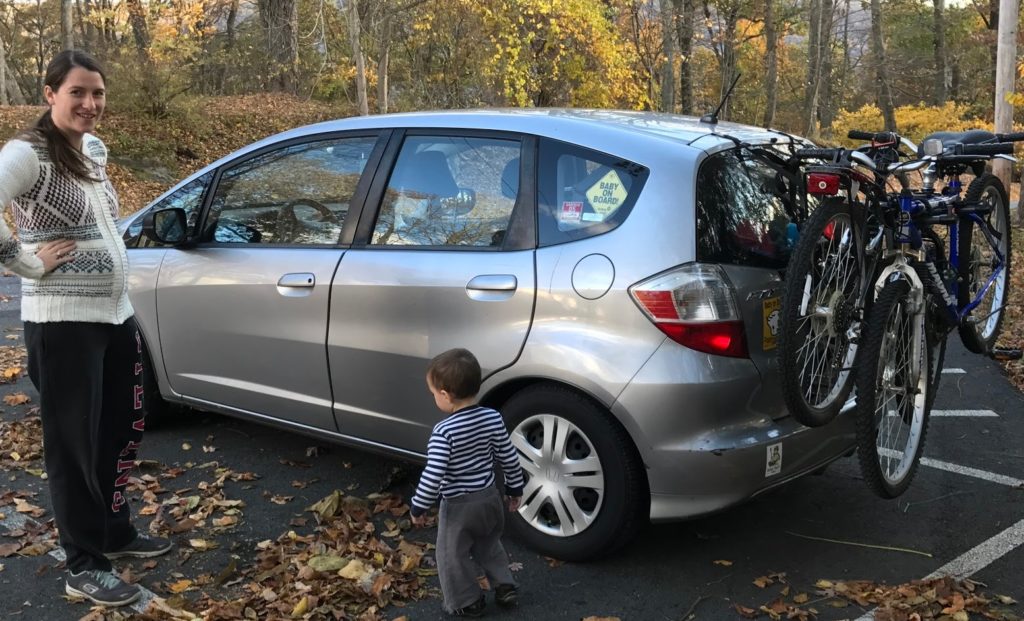
This car is still my wife’s daily driver. We bought it in 2014, when it was just 5 years old and had 62,000 miles on it. We paid $3,000 and it needed nothing. Even today, three years later and with over 100,000 miles on it, it can still be sold for well over double what I paid for it.
The seller was an MIT graduate living in NYC who just didn’t need the car. He had only been turning on the car to move it from one side of the street to the other for the street cleaning days. Finally, because he didn’t drive it for a long time, the battery died on him. Exasperated, he quickly made a listing on Craigslist, just wanting the car gone. I still remember the listing: it was very simple, and I’m sure many just mistook it for a scam (there are many scams and fake listings on Craigslist). There was no picture, just a very simple write-up giving the make, model, and mileage, with a price of $3000. I believe it also said the first one to come – gets it. These types of listings are usually how I got my best deals, so I raced over to NYC with my dad. We jumped the car and it ran fine. I didn’t even need to change the battery, which worked fine for the next two years. Out of habit, I still tried negotiating the price down- he didn’t go for it.
The Ideal Used Car
Here is my description of the ideal used car that will be the best bang for your buck and will get you from A to B the most reliably with the least cost investment for the longest period of time:
- One owner, with maintenance records
- $5,000
- 60,000 miles
- Japanese make
- 6 years old
- 4 cylinder subcompact car
- Hatchback
So why this criteria? $5k is a third of the cost of a brand new, base-model, subcompact car. A car with 60k miles should still have at least 2/3 of its life left. These newer subcompacts have timing chains, so you don’t have to worry about having to change the timing belt, and the simple engines are fuel-efficient and maintenance-free. It seems like spark plugs and transmission fluid lasts 100k miles these days, so the only maintenance you really need to be doing is an oil change every 5000 miles. These subcompacts like the Toyota Yaris, Honda Fit, Nissan Versa, Scion XA, and Mitsubishi Mirage all start at around $15k new, get about 40mpg, and are simple, reliable, basic cars. They get almost the same mileage as a hybrid without having to deal with the battery and other expensive parts that become costly repairs. Hatchbacks are great because you can fit almost as much stuff as a pick-up truck, I’ve fit 8 foot long 2″x4″s, ovens, washer machines, dryers, etc. in my Yaris and Honda Fit before.
Conclusion
Although I am glad to have had the experience of buying and selling cars and it has been invaluable in picking up a number of different skill sets, I personally would not recommend it as a means of making money. It is quite time consuming and getting more and more competitive. I’m sure people can probably come up with better ways to optimize this business and make it more lucrative. But the way I see it, it’s much easier to make money selling a private-label product on Amazon.
Regardless, I hope that this post has been helpful. If nothing else, you can use the tips learned here to buy your next car!

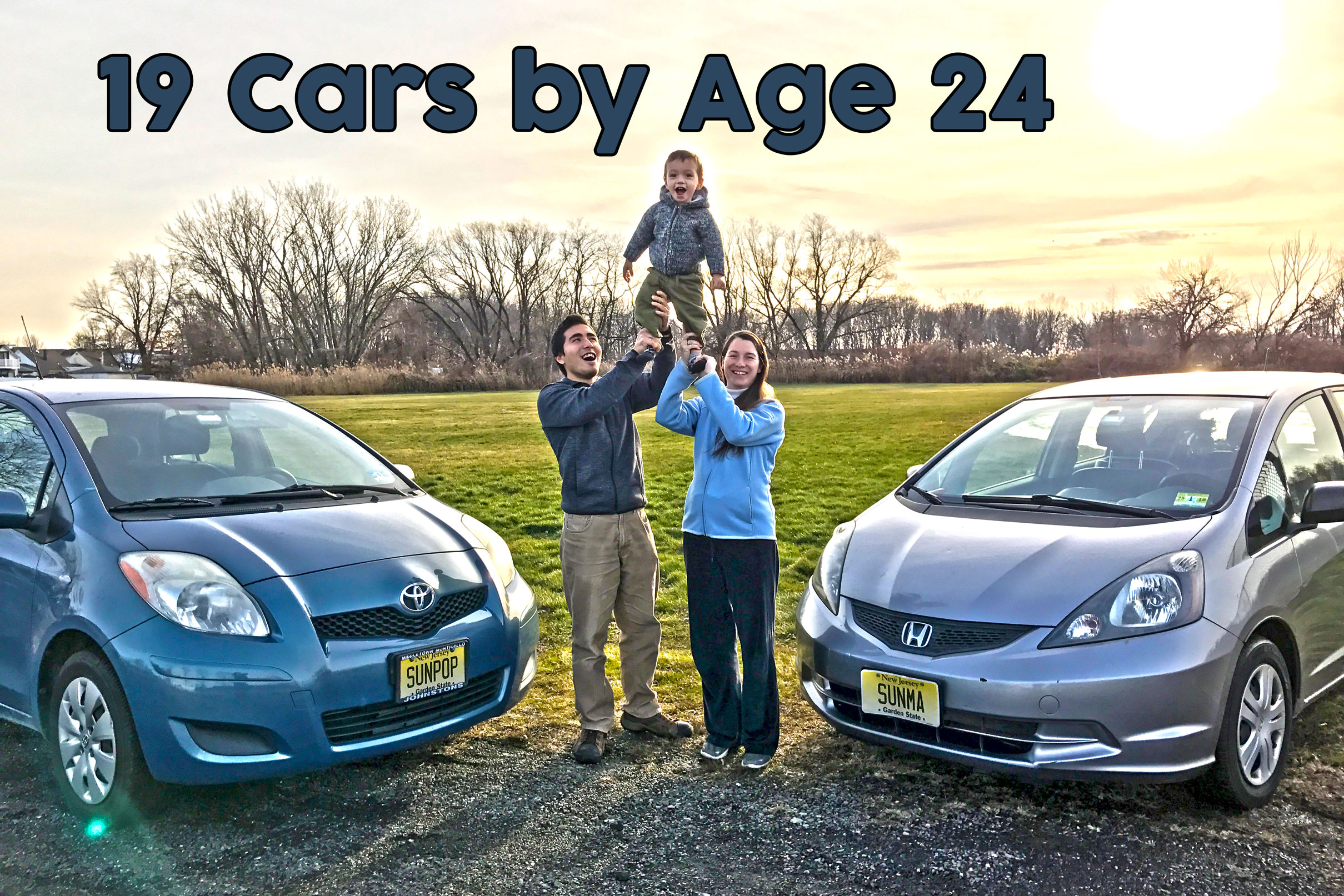
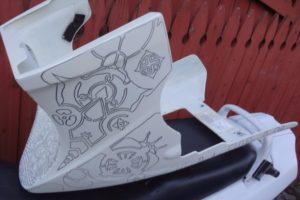
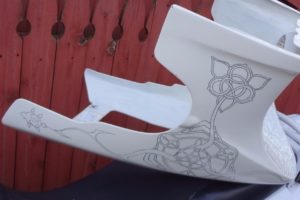

12 thoughts on “Why I Owned 19 Cars by Age 24”
Great post!
Love to see the learning process you went through.
Thank you, glad you got something out of it. Yea it was definitely a process, lot of learning auto mechanics through YouTube. Anyway I’m grateful for the experience and life skills I gained from doing it.
Howdy Sunny/Sun Marie. I just listened to your interview on Bigger Pockets. Y’all have inspired me to try to house hack in 2017. I love the ideas that you’re promoting on this blog
(“Kids don’t need the latest iPad, the newest mini-van, or the fanciest summer camps. What they really need are loving parents who have the time to be there for them.”)
Question: Where did you get these spare license plates from when you were flipping cars?
Feel free to e-mail me if you prefer.
I have a friend named Jon Lee – good ultimate player. Anyway glad you liked the show.
Regarding the license plates, I would usually just take them off one of my parents cars temporarily just for the pick-up to bring it back to my house.
If you want to be by the book and pay all those taxes, you just take the title to the MVC and they will issue you new plates when you register the vehicle.
You are a hustler. Seems like you found your niche. I’m surprised you didn’t parlay this into getting car dealer license and opening up a small shop. Seems like you could make bank with your eye for quality cars 🙂
The thought has definitely crossed my mind, but currently pursuing much more passive methods of acquiring income. If I some day get an apprentice who could manage the shop I could perhaps look into it again.
Great info here! I will be using it for buying a new used car for my wife and I. I definitely see what you mean by the competitiveness in this market though
Hey best of luck! Deals are out there you just gotta look and jump on them when they come up.
Did the state ever bother you about getting a Dealer’s license? I understand that in some states there are limits to how many cars you can sell/year without a dealers license. Interestingly enough when looking at the regulations in NJ – it doesn’t specify anything about such limit. Just curious
Nope never had issues… but again I only registered maybe 30% of the cars I bought. Whenever possible I would “wholesale” them, by just having the original seller sign the title and then having my buyer sign as the new buyer. This saved on taxes and title fees.
Isn’t Jumping title illegal?
Never heard that term, but it’s definitely possible.